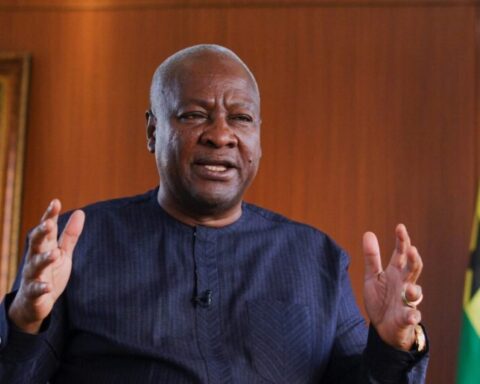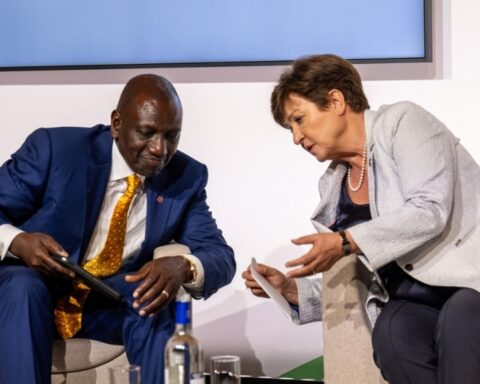Artificial intelligence is set to affect nearly 40% of all jobs, according to new analysis.
IMF’s managing director Kristalina Georgieva says “in most scenarios, AI will likely worsen overall inequality”.
Ms Georgieva adds that policymakers should address the “troubling trend” to “prevent the technology from further stoking social tensions”.
The proliferation of AI has put its benefits and risks under the spotlight.
The IMF said AI is likely to affect a greater proportion of jobs – put at around 60% – in advanced economies. In half of these instances, workers can expect to benefit from the integration of AI, which will enhance their productivity.
In other instances, AI will have the ability to perform key tasks that are currently executed by humans. This could lower demand for labour, affecting wages and even eradicating jobs.
Meanwhile, the IMF projects that the technology will affect just 26% of jobs in low-income countries.
IMF report published Sunday evening notes that only half of the jobs impacted by AI will be negatively affected; the rest may actually benefit from enhanced productivity gains due to AI.
“Your job may disappear altogether – not good – or artificial intelligence may enhance your job, so you actually will be more productive and your income level may go up,” Georgieva said.
Georgieva’s take on artificial intelligence coincides with the meeting of global business and political leaders at the World Economic Forum in Davos, Switzerland, where AI is a topic of discussion.

Companies have been throwing cash at the emerging technology, sometimes sparking concern among employees about the future of their roles. One example is Buzzfeed Inc., which announced plans to use AI to help with content creation and closed its core news department, laying off more than 100 staffers.
The European Union reached a tentative deal in December on legislation setting out safeguards on AI, while the US is still weighing its federal regulatory stance.
The IMF report predicted that, while labour markets in emerging markets and developing economies will see a smaller initial impact from AI, they are also less likely to benefit from the enhanced productivity that will arise through its integration in the workplace.

“We must focus on helping low income countries in particular to move faster to be able to catch the opportunities that artificial intelligence will present,” Georgieva told AFP.
“So artificial intelligence, yes, a little scary. But it is also a tremendous opportunity for everyone,” she said.
The IMF is due to publish updated economic forecasts later this month which will show the global economy is broadly on track to meet its previous forecasts, she said.
It is “poised for a soft landing,” she said, adding that “monetary policy is doing a good job, inflation is going down, but the job is not quite done.”
“So we are in this trickiest place of not easing too fast or too slow,” she said.
The global economy could use an AI-related productivity boost, as the IMF predicts it will continue growing at historically muted levels over the medium term.
“God, how much we need it,” Georgieva said. “Unless we figure out a way to unlock productivity, we as the world are not for a great story.”
Georgieva said 2024 is likely to be “a very tough year” for fiscal policy worldwide, as countries look to tackle debt burdens accumulated during the Covid-19 pandemic, and rebuild depleted buffers.
Billions of people are also due to go to the polls this year, putting additional pressure on governments to either raise spending or cut taxes to win popular support.
“About 80 countries are going to have elections, and we know what happens with pressure on spending during election cycles,” she added.
The concern at the IMF, Georgieva said, is that governments around the world spend big this year and undermine the hard-won progress they have made in the fight against high inflation.
“If monetary policy tightens and fiscal policy expands, going against the objective of bringing inflation down, we might be for a longer ride,” she added.
Georgieva, whose five-year term at the IMF’s helm is set to end this year, refused to be drawn on whether she intends to run for a second stint leading the international financial institution.
“I have a job to do right now and my concentration is on doing that job,” she said.
“It has been a tremendous privilege to be the head of the IMF during a very turbulent time, and I can tell you I’m quite proud of how the institution coped,” she continued. “But let me do what is in front of me right now.”
Additional Source:Gulf News






